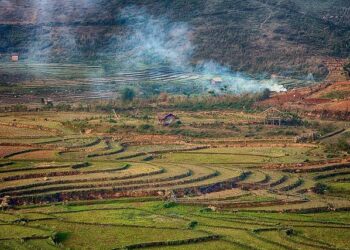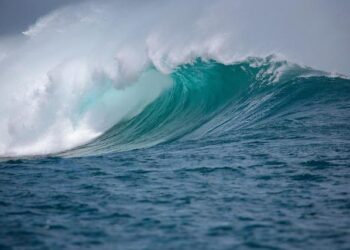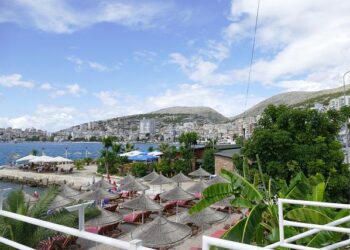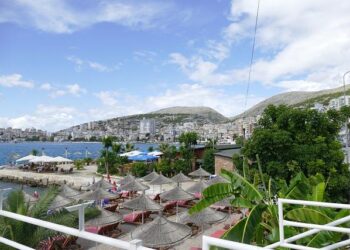Balancing Tourism Growth and Climate Challenges: The Case of Albania’s Coastline
Albania’s stunning coastline is experiencing an extraordinary surge in tourism, attracting travelers with its lovely beaches and rich cultural heritage. However, this rapid influx presents a formidable challenge to the delicate balance between economic growth and environmental preservation. The Albanian Riviera, once a hidden gem of the Balkans, now grapples with increasing pressures from tourist arrivals as well as the detrimental impacts of climate change. Rising sea levels, accelerated erosion rates, and shifting weather patterns threaten the very ecosystems that make this destination so desirable. This article explores the complex interplay between booming tourism and climate-related issues while highlighting the urgent need for lasting practices to safeguard Albania’s coastal treasures for future generations.
Assessing Tourism’s Impact on Albania’s Coastal Ecosystems
The rapid growth of tourism along Albania’s picturesque coastline is reshaping not only its economy but also its vulnerable coastal ecosystems. As more visitors arrive to enjoy unspoiled beaches and scenic views, natural resources are increasingly under pressure. Key challenges arising from this surge include:
- Overdevelopment: The proliferation of hotels and resorts threatens local wildlife habitats.
- Environmental Contamination: An increase in waste generated by tourists jeopardizes water quality.
- Cultural Erosion: Traditional practices risk being overshadowed by commercial interests.
The effects of climate change exacerbate these challenges further, leading to rising sea levels and extreme weather events that put coastal communities at risk. Recent studies have identified several vulnerabilities:
| Impact | Potential Consequences |
|---|---|
| Increased Flooding | Deterioration of infrastructure alongside loss of tourist attractions. |
Sustainable Development Strategies for Coastal Areas Amid Climate Change Challenges
The visible effects of climate change on Albania’s beautiful coastline are becoming increasingly apparent as tourism continues to expand rapidly. To protect these invaluable environments while promoting economic growth, stakeholders must implement innovative strategies focused on sustainability. Key measures include:
- Integrated Coastal Zone Management (ICZM):This approach encourages community involvement ensuring that development projects respect environmental integrity alongside social needs.
- Sustainable Construction Practices:A focus on eco-kind building materials can substantially reduce ecological footprints associated with new developments.
- Sustainable Tourism Initiatives:Pushing operators towards adopting environmentally responsible practices such as waste reduction can greatly lower carbon emissions within the sector.
- Nurturing Natural Defenses:Ecosystem restoration efforts targeting wetlands or mangroves can provide essential protection against flooding or erosion risks.
Additionally, collaboration among government agencies, local businesses, and environmental organizations is crucial for establishing a robust framework for coastal management. A strategic approach may involve initiatives such as:
| Strategy | Description | |
|---|---|---|
| Public Awareness Campaigns | Educating citizens about the importance of coastal conservation . |
If diligently pursued , these strategies could enable Albania not only to safeguard its coastlines but also emerge as a leader in sustainable tourism across the region , ensuring harmony between natural beauty economic viability long into future generations .
Aligning Economic Growth With Environmental Protection In Albanian Tourism Sector
The remarkable expansion experienced by Albania’s tourism industry highlights an urgent need address pressing environmental issues arising from increased visitor numbers drawn towards stunning Adriatic Ionian coastlines . Activities linked directly contribute significantly toward habitat destruction pollution exacerbated already existing problems like coastal erosion .It becomes imperative government stakeholders collaborate effectively implement sustainable approaches allowing economic expansion without compromising natural allure attracting tourists initially.To counteract impacts stemming from climate change unsustainable practices several actionable strategies could be adopted including :
- Promoting Eco-Friendly Accommodations :Encourage hotels resorts embracing green initiatives focusing energy efficiency waste reduction.
- Implementing Controlled Visitor Access :Regulate number tourists entering sensitive areas mitigate strain habitat.
- Investing In Infrastructure Improvements :Upgrade waste management systems enhance water treatment facilities popular destinations.
- Raising Public Awareness :( Educate locals visitors alike regarding importance responsible eco-conscious travel choices ) ;
…
[1] [1] [1]
[1] [1]
[1]
[1]
[1]
### Conclusion ### As travelers continue flocking towards idyllic shores seeking sun-soaked experiences rich culture , it becomes increasingly vital maintain balance between economic progress ecological preservation amidst growing threats posed by climate change rising sea levels intensified erosion jeopardize landscapes captivating global audiences .
Collaboration among various stakeholders—government officials local communities—will play pivotal role implementing effective sustainable measures protecting unique ecosystems while encouraging responsible travel behaviors throughout country navigating complexities inherent situation requires unified commitment prioritize long-term health habitat over short-term gains without sacrificing charm allure defining essence what makes Albanian coasts truly special future generations deserve experience same beauty wonder enjoyed today time act decisively before irreversible consequences unfold upon idyllic beaches symbolize nation’s appeal fading away sands time.
















